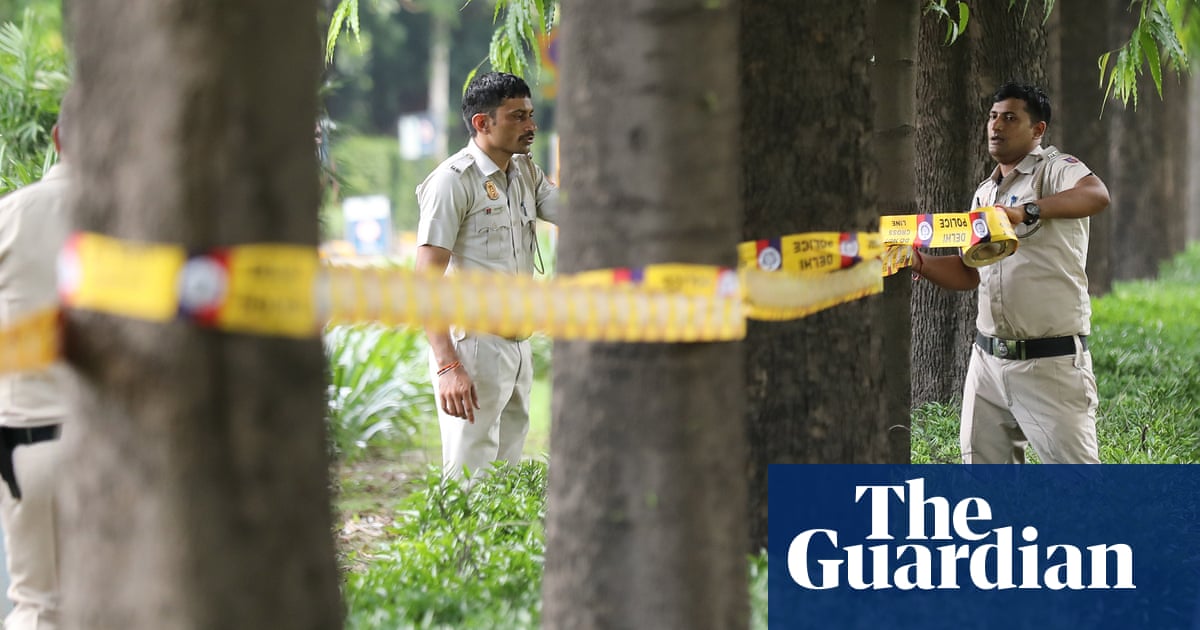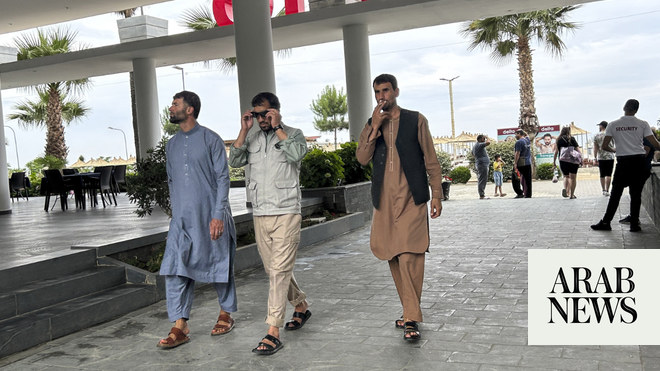
Havana — Cubans have long regarded emigrating to the United States as something of a birthright derived from the privations they endured as a result of sanctions that Washington has imposed on Cuba for decades.
Last week, for the first time in decades, the United States effectively shut down the immigration pipeline from the island as it sharply reduced its staff at the embassy in Havana in response to mysterious ailments there, leaving in limbo more than 100,000 Cubans, most of whom are seeking to reunite with relatives.
The decision to indefinitely suspend visa processing at the embassy — one of the busiest consular posts in the region — could mean that the United States will fail to honor its obligations under a 1994 deal that requires the admission of at least 20,000 Cuban immigrants a year, current and former American diplomats say. The accord was reached in an effort to stem an exodus by Cubans who took to the seas in rafts by the thousands in the 1990s trying to reach Florida.
The halt in visa services comes roughly nine months after Washington ended its “wet foot, dry foot” policy. That policy, which required Cubans caught trying to reach the United States by sea to return home but allowed those who make it onto American soil to stay, had in recent years enabled an additional tens of thousands of Cubans to move to the United States.
The sudden suspension of legal pathways for Cubans to settle in the United States could set off a new migration surge, experts in both countries said, particularly if Cuba experiences an economic downturn.
“It doesn’t give them an escape,” said Vicki Huddleston, a Cuba expert who ran the United States diplomatic mission in Havana from 1999 to 2002. “I think it risks another massive migration. You have folks who really want to leave, and at least that was a possibility while we were issuing immigrant visas.”
As of November 2016, there were 106,351 Cubans awaiting immigrant visas, according to the State Department, which did not respond to questions about how it intended to address this caseload given the reduced staffing level in Havana.
Cuban Americans and their relatives on the island, many of whom have spent years waiting for visa interview appointments, were despondent after learning that consular services in Havana had been suspended.
Irene Hierrezuelo, 50, had been so anxious in recent weeks about her Oct. 2 appointment at the embassy that she barely slept at night and took pills to steady her nerves. She was counting the days to be reunited with her daughter, Sulay Falconet, 30, who moved to Houston in 2012, and to embrace her 3-year-old grandson, Jeremy. The yearning to be reunited became unbearable, she said, after Ms. Falconet’s home was flooded last month when Hurricane Harvey battered Houston.
“I feel so powerless,” Ms. Hierrezuelo said in a telephone interview over the weekend, breaking into sobs. “The only thing I have in life is my daughter and my grandson.”
Ms. Falconet, who works at a car dealership in Houston, said she had been looking forward to holidays and birthdays once again being joyous events rather than reminders of her mother’s solitude.
“To be honest, I’m very afraid,” she said. “No one gives you answers.”
The news also devastated Carmen Miranda, a doctor who secured a United States visa in 2015 after defecting from a medical mission run by the Cuban government in Brazil. Ms. Miranda, 50, was allowed to sponsor her husband and younger daughter for visas at the American consulate in Rio de Janeiro.
But her older daughter, Mariela Quiñones, had to return to Havana and wait a few years to join the family, because new American immigrants can simultaneously sponsor only children who are under 21. Ms. Quiñones was 23 when her family moved to Miami, and she had to wait, now she is 27 and the new US decision has closed the door infront of her.
The State Department has said that Cubans may apply for temporary visas, such as those issued to students and tourists, at other embassies. But it has offered no guidance to applicants for immigrant visas, which are generally issued in a person’s country of origin or residence.The New York TimesCubans have long regarded emigrating to the United States as something of a birthright derived from the privations they endured as a result of sanctions that Washington has imposed on Cuba for decades.
Last week, for the first time in decades, the United States effectively shut down the immigration pipeline from the island as it sharply reduced its staff at the embassy in Havana in response to mysterious ailments there, leaving in limbo more than 100,000 Cubans, most of whom are seeking to reunite with relatives.
The decision to indefinitely suspend visa processing at the embassy — one of the busiest consular posts in the region — could mean that the United States will fail to honor its obligations under a 1994 deal that requires the admission of at least 20,000 Cuban immigrants a year, current and former American diplomats say. The accord was reached in an effort to stem an exodus by Cubans who took to the seas in rafts by the thousands in the 1990s trying to reach Florida.
The halt in visa services comes roughly nine months after Washington ended its “wet foot, dry foot” policy. That policy, which required Cubans caught trying to reach the United States by sea to return home but allowed those who make it onto American soil to stay, had in recent years enabled an additional tens of thousands of Cubans to move to the United States.
The sudden suspension of legal pathways for Cubans to settle in the United States could set off a new migration surge, experts in both countries said, particularly if Cuba experiences an economic downturn.
“It doesn’t give them an escape,” said Vicki Huddleston, a Cuba expert who ran the United States diplomatic mission in Havana from 1999 to 2002. “I think it risks another massive migration. You have folks who really want to leave, and at least that was a possibility while we were issuing immigrant visas.”
As of November 2016, there were 106,351 Cubans awaiting immigrant visas, according to the State Department, which did not respond to questions about how it intended to address this caseload given the reduced staffing level in Havana.
Cuban Americans and their relatives on the island, many of whom have spent years waiting for visa interview appointments, were despondent after learning that consular services in Havana had been suspended.
Irene Hierrezuelo, 50, had been so anxious in recent weeks about her Oct. 2 appointment at the embassy that she barely slept at night and took pills to steady her nerves. She was counting the days to be reunited with her daughter, Sulay Falconet, 30, who moved to Houston in 2012, and to embrace her 3-year-old grandson, Jeremy. The yearning to be reunited became unbearable, she said, after Ms. Falconet’s home was flooded last month when Hurricane Harvey battered Houston.
“I feel so powerless,” Ms. Hierrezuelo said in a telephone interview over the weekend, breaking into sobs. “The only thing I have in life is my daughter and my grandson.”
Ms. Falconet, who works at a car dealership in Houston, said she had been looking forward to holidays and birthdays once again being joyous events rather than reminders of her mother’s solitude.
“To be honest, I’m very afraid,” she said. “No one gives you answers.”
The news also devastated Carmen Miranda, a doctor who secured a United States visa in 2015 after defecting from a medical mission run by the Cuban government in Brazil. Ms. Miranda, 50, was allowed to sponsor her husband and younger daughter for visas at the American consulate in Rio de Janeiro.
But her older daughter, Mariela Quiñones, had to return to Havana and wait a few years to join the family, because new American immigrants can simultaneously sponsor only children who are under 21. Ms. Quiñones was 23 when her family moved to Miami, and she had to wait, now she is 27 and the new US decision has closed the door infront of her.
The State Department has said that Cubans may apply for temporary visas, such as those issued to students and tourists, at other embassies. But it has offered no guidance to applicants for immigrant visas, which are generally issued in a person’s country of origin or residence.The New York Times












